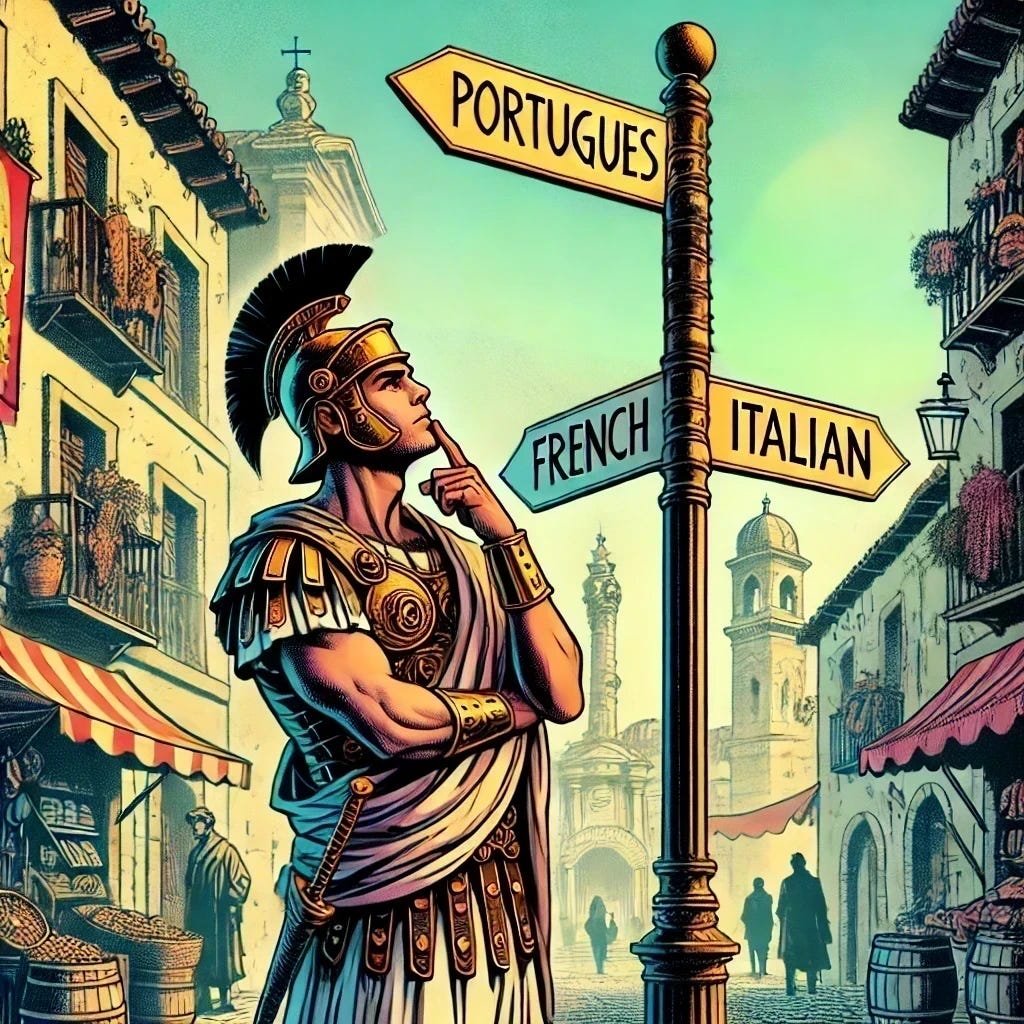As the Roman Empire spread, so did its culture and language. We know that calendars and days of the week gradually became standard across Europe, and lots of ancient customs gradually aligned to fit into the Roman framework.
From aqueducts to irrigation to laws, Rome’s influence came to dominate the common pond that was the Mediterranean.
Perhaps nothing was more pervasive than the language of the Romans, Latin. After all, you really needed to be able to speak the same language if you were brought into a court in another city, or if you wanted to trade with another person from far away, it was convenient to have a common tongue.
Latin became the language of education, law, and administration, and it was often used to bridge the gap anywhere in Europe, the Middle East, or Northern Africa where you wanted to do business or just have a conversation.
Now, not everyone spoke Latin everywhere, but over time it became more and more common to hear folks who weren’t a part of that administrative state using Latin. More and more regular folks started speaking the language.
Over time, the Western Roman Empire fell apart. After wrestling around and jockeying around for power, ever more distinct independent cultures formed based on geographic isolation. If Rome’s empire was any one thing, it was a great connector for all of its lands.
Once the empire fell apart in the west, one group of Latin-speaking folks was fairly cut off from the rest and ended up at the end of the Iberian peninsula. We call these two nations Spain and Portugal today.
Meanwhile, a separate culture developed in the south of Europe along the Italian peninsula, where the modern nation of Italy is today. France is situated somewhat to the north and between these two regions, complete with its own very French way of doing things.
Here’s the thing: they still speak Latin in these nations today.
I’m not talking about the ten thousand people practicing Latin on Duolingo in Europe, nor about Latin professors who enjoy translating ancient texts so that they can understand the nuances of the ancient language for themselves.
I’m talking about the languages we call Portuguese, Spanish, French, and Italian today. Sure, we call them independent languages, and they can be really hard to learn for a native English speaker!
However, let’s consider what happened to all those Latin speakers. A unified linguistic empire was fragmented, but everyone still spoke the language. Now the people who lived in Iberia were at war with the people who lived Frankia, where modern-day France is, and the Italians living on that peninsula were a bit cut off from the rest by way of rivers that were no longer crossed so frequently.
Trade dried up and things slowed down a bit in medieval Europe. Historians sometimes call this era in Europe the Dark Ages, and while I don’t like to be so stark with my own language, its certainly fair to say that knowledge was nowhere near as unified as it was.
In other words, everyone worked in silos.
These silos quarantined one culture away from another for long enough so that the language started to drift. Now, don’t get me wrong here: these cultures already had strong dialects, where one group could mostly understand the other group. I see this here in the United States everywhere. Let me know if there are any US dialects you find particularly difficult to understand in the comments.
At some point, dialects splinter off into languages. A lot of this was baked into the cake, so to speak: native speakers of whatever language was there before Latin had particular ways of pronouncing things, and these interpretative sounds became a part of what would eventually develop into a new language.
The first time I visited Brazil, I was told over and over again that Portuguese was very different from Spanish. I was left with the impression that understanding Spanish might actually do more harm than good.
I was quickly disabused of this silly notion as I watched my Spanish-fluent friend navigate easily through situations, sometimes using a gesture or two to bridge the conversational gap.
The next time you hear one of these so-called Romance languages, try to listen out for similarities. Sure, the words sound a little different, but if you can run them through a sort of mental pronunciation filter, you can probably see how the languages are really the same.
Today, nearly a billion people still speak Latin, by way of the languages we call Portuguese, Spanish, French, Italian, and Romanian. The people speaking Portuguese might have a hard time understanding people speaking French, so they’re not going to have a very fluent conversation, but it pays to keep in mind that there isn’t exactly a clear line where you have a dialect and where you have a new language.






"Let me know if there are any US dialects you find particularly difficult to understand..."
The "English" spoken in New York City, particularly Brooklyn, is hard for someone not of the area to understand. Sometimes especially reading it in print.
And now Latin is being increasingly taught in schools in lieu of other languages first. For instance, my kids are learning it in elementary school and won't be exposed to other languages like Spanish anti middle school. This is the case for other children of friends I have in other arts of the country. It's even a plot point in one of the "Diary of a Wimpy Kid" series! It's back!